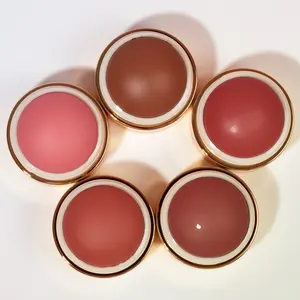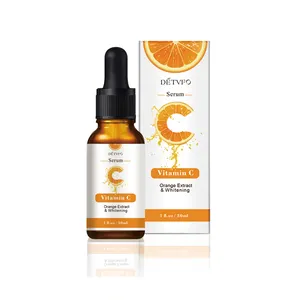(212523 products available)














































 Ready to Ship
Ready to Ship

























































































 Ready to Ship
Ready to Ship



















































































 Ready to Ship
Ready to Ship





 Ready to Ship
Ready to Ship











A cosmetic wholesale sells beauty products in bulk at discounted prices. Retailers and other businesses usually buy from these wholesalers to stock their inventory. There are two main types of wholesale deals:
Wholesalers offer different ways to do business with them.
Some wholesalers allow customers to pick the products they want. While others force them to accept pre-selected packages. The second option is called package deals. Beauty product wholesalers also offer deal samples. These are small amounts of products that customers can inspect before buying in large quantities.
Business buyers should understand how to use and install these products and the safety measures to ensure a good experience.
Skin care products
Start by cleansing the face to remove dirt and oil. Apply a toner with a cotton pad to balance the skin's pH. Use a small amount of serum and gently pat it onto the skin. Apply moisturizer to hydrate the skin. Finish with sunscreen to protect the skin from harmful UV rays.
Makeup products
Prep the skin with a suitable primer. Use a foundation and apply it evenly on the face. Apply makeup in layers, like concealer, blush, and eye shadow. Finish with a lip product and long-lasting setting spray.
Body care products
Exfoliate dead skin with a scrub. Apply lotion or cream and massage into the skin. Use sunscreen to protect the skin from UV rays.
Products are safe when they have no harmful chemicals in their formulations. This includes substances like formaldehyde, phthalates, parabens, or sulfates. These chemicals can cause skin irritation or other health problems. Check if the products have certifications from reputable organizations. It shows that the product meets certain safety and quality standards. Some certifications include CE markings, American and European compliance, and ISO certifications. The product should have packaging that is properly sealed. This helps to prevent leakage, contamination, or tampering. Also, check the packaging for any signs of damage.
Beauty enhancement:
Makeup products like lipsticks, eyeshadows, and blushes are designed to enhance one's features and add beauty. They can create different looks, from natural to dramatic, and help express individual style and creativity.
Skin care:
Many cosmetics have ingredients that help nourish, moisturize, and protect the skin. Foundations and BB creams can provide a base for even skin tone while offering some coverage for blemishes or discoloration. These products may contain sunscreens or antioxidants that benefit skin health over time.
Covering imperfections:
Cosmetics like concealers and color correctors are used to cover acne scars, dark circles under the eyes, redness, or other skin issues. They give a more uniform appearance and boost the confidence of someone whose natural complexion has flaws.
Versatility:
Many cosmetic products serve more than one function. For example, tinted moisturizers hydrate the skin while providing light coverage and a sunblock.
Ease of application:
Most modern cosmetics are designed for quick and easy application. This includes user-friendly packaging such as pumps, sticks, and compacts as well as tools like brushes and sponges that help blend products smoothly on the face or body.
Longevity:
Some cosmetics are formulated to last longer throughout the day without touch-ups needed by the user. These long-wear formulas resist smudging, fading, or transferring to keep makeup looking fresh for hours.
Packaging:
Cosmetics come in various attractive and functional packaging designs. Compact mirrors allow on-the-go applications, while clear tubes let users see how much product remains inside. Other examples include airless pumps that prevent contamination and squeeze bottles that minimize waste.
Shades:
Cosmetic lines offer products in many different colors and tones to suit all skin types, from light to dark. Having numerous options increases the likelihood of finding cosmetics that match individual needs perfectly.
Formulas:
Cosmetics come in varying textures and consistencies, such as liquids, creams, powders, gels, or balms. Each formula feels different on the skin and may apply or perform in unique ways compared to others.
Q1. What is the MOQ for wholesale cosmetics?
A1. The minimum order quantity varies depending on the manufacturer. Some offer MOQ as low as 10 pieces while others can go up to 1000 pieces. The MOQ also depends on the type of product. For example, bulk skincare products may have a higher MOQ compared to wholesale lipsticks.
Q2. Can buyers order customized products?
A2. Yes. Many cosmetic wholesalers offer customized products. This gives business buyers an opportunity to order products that meet the needs of their target customers. Some manufacturers allow buyers to choose the color, size, packaging or add their logos on the product.
Q3. What are some trends in wholesale cosmetics?
A3. Some trends that business buyers should keep an eye on include sustainable beauty products, clean beauty products and personalized cosmetics. Sustainable beauty products include those that are packaged in recycled materials. They are also made using vegan formulas. The products contain no animal cruelty and are eco-friendly. Clean beauty products are made using organic ingredients. They have no harmful chemicals and artificial additives. Personalized cosmetics are made according to individual preferences. They include customized skincare products and shades of makeup.
Q4. What are the payment methods?
A4. The payment methods vary depending on the location of the wholesaler. Common payment methods include credit and debit cards, PayPal, bank transfers and cash.